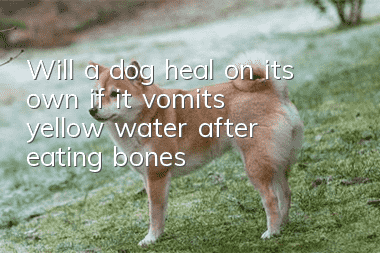Symptoms of Rhinitis in Dogs Factors that Cause Rhinitis in Dogs

Causes of rhinitis in dogs
First, cold stimulation causes the nasal mucosa to become congested and exudate under the stimulation of cold. As a result, the bacteria that are present in the nasal cavity take the opportunity to develop and multiply, causing mucosal inflammation. Therefore, winter is the season when rhinitis is most common.Second, inhalation of ammonia, chlorine, smoke, dust, pollen, insects, etc. can directly irritate the nasal mucosa and cause inflammation.
Third, it is secondary to the spread of certain infectious diseases or inflammation of adjacent organs.
Key points of diagnosis
(1) Acute rhinitis: In the early stage of the disease, the nasal mucosa is red and swollen, and sneezing is common. Sick dogs often shake their heads or scratch their noses with their front paws, and then run out of one or both sides of the nostrils, and begin to become pulpy or mucous-pus. Dry scabs form around the nostrils after drying. When the condition is severe, the nasal mucosa is obviously swollen, the nasal cavity becomes narrow, which affects breathing, and the sound of nasal congestion is often heard. Conjunctivitis, shyness, tears. When pet dogs suffer from laryngitis, they present with difficulty swallowing, coughing, and swollen lymph nodes in the mandible.Chronic rhinitis
The condition develops slowly, with nasal discharge that is more or less frequent and mostly mucopurulent. If inflammation involves the paranasal sinuses, it can often cause bone necrosis and tissue disintegration, so the nasal mucus may be mixed with blood and have a putrid smell. Chronic rhinitis can often be the cause of suffocation or encephalopathy and should be taken seriously.The diagnosis can be made based on nasal symptoms, such as flushing and swelling of the nasal mucosa, runny nose, sneezing and nose scratching.
Prevention and treatment measures: In the treatment of rhinitis, the cause of the disease should first be removed, the sick pet dog should be placed in a warm environment, the dog should be stopped from training, and the dog should rest appropriately. Generally speaking, dogs with acute mild illness can often recover without medication. For severe rhinitis, the following drugs can be used to flush the nasal cavity of sick dogs: 1% saline solution, 2-3% boric acid solution, 1% sodium bicarbonate solution, 0.1% potassium permanganate solution, etc. However, when flushing the nasal cavity, the sick dog must be Lower your head, rinse, and drip anti-inflammatory agent into the nose. In order to promote vasoconstriction and reduce sensitivity, 0.1% epinephrine or phenyl salicylate paraffin oil (1:10) can be dropped into the nose, or nasal drops can be used. Pet dogs suffering from rhinitis will have a variety of symptoms. Dogs with rhinitis will have a runny nose and sneezing. Every owner wants their pet dog to grow up healthily. Therefore, in order to make dogs recover as soon as possible, we should take it seriously and take all preventive measures in daily life to reduce the number of dogs suffering from rhinitis. rate.
Random articles
- In vitro deworming allergy symptoms in dogs
- Why are dogs afraid of the sound of firecrackers?
- Is the Bichon Frize's fur straight or curly?
- How to make a Teddy dog house
- Why does a dog always lick its nose? If a dog licks these places, it means there is a problem!
- How much does a two-month-old Alaska eat? What is the standard feeding amount for Alaska?
- Ranking of the top ten banned fierce dogs in the world. Dog breeds that are extremely difficult to tame.
- Bowang Ocean Fish Full Price Hair Removal, Excellent Skin Care and Kidney Replenishing Formula Cat Food 5kg Free Shipping after 68 RMB Coupon
- My hand was bitten by my dog and it bled. Don’t worry, not all dogs have rabies!
- If your dog shows no symptoms within 6 hours after eating grapes, don’t take it lightly.



